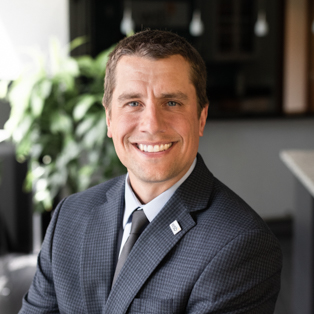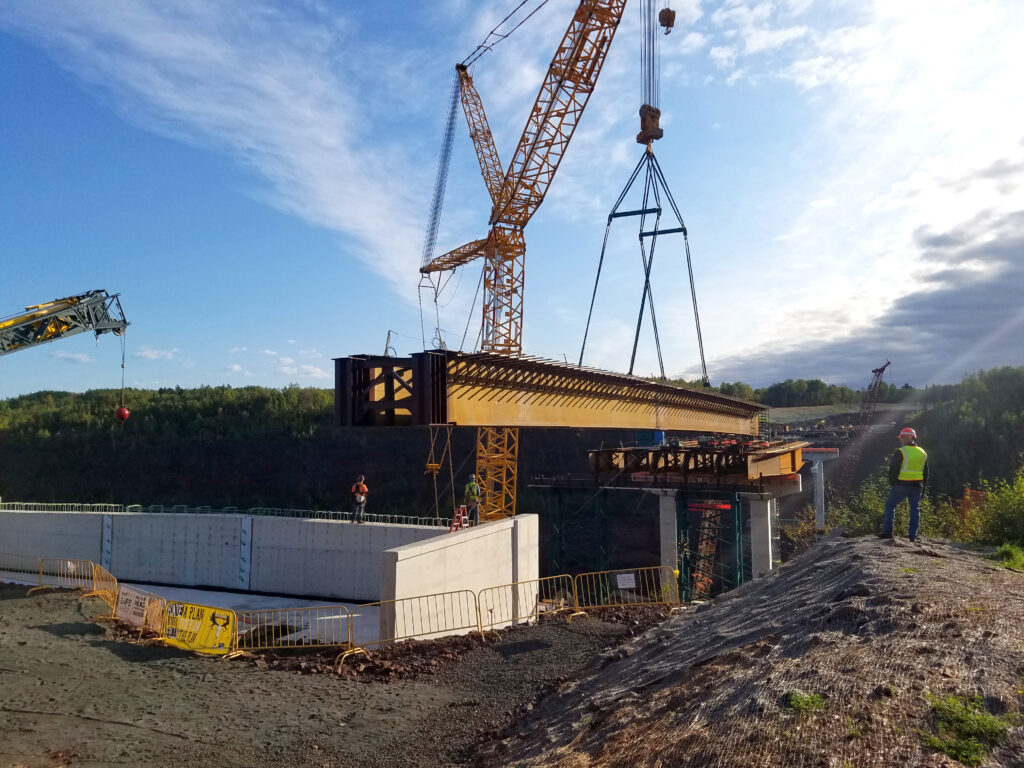By Jake Newhall, Project Manager & Pete Willenbring, Vice President, WSB
Approaching winter conditions mean more salt in stormwater systems
Chlorides in our local bodies of water have become a rising concern in recent years. As winter weather approaches and causes icy conditions, our parking lots, roadways and sidewalks are treated with salt to melt snow and ice.
Salt creates safer winter driving conditions, but the environmental impacts of salt use are raising concerns on the long-term effects on fisheries, plant life and surrounding wildlife. The salt used to treat our roadways and pedestrian areas contains chloride that dissolves when mixed with water. This has resulted in increased chloride concentrations in many lakes, streams, and wetlands. The elevated chloride levels are high enough in some cases to cause significant environmental impacts.
Removing chloride from water is possible, but the technology is incredibly expensive, and disposal of the chloride removed is a challenge. The primary way to remove chlorides requires high-tech reverse osmosis filters. This is not unlike the challenges presented in treating ocean water for potable source water.
Monitoring the runoff and impacted surface water bodies in areas where heavy salt application is occurring is allowing us to gain a better understanding of the effects of chlorides on our environment and how communities can manage application rates to balance public and environmental safety.
In recent years, WSB has been working closely with state and local agencies to monitor and track the application, runoff concentrations, and ultimate impacts of chlorides in various locations. The goal is to develop a better methodology to manage the application, potential chloride disposal opportunities, and minimize environmental impacts. Through this research, we’ve been exploring ways to reroute chloride-saturated runoff away from local surface waters and BMPs and protect them from elevated concentrations.
As we continue to monitor and evolve our understand of chlorides, we are developing several initiatives with cities, watersheds, and the Metropolitan Council that will allow us to balance future management strategies, public safety, and environmental impacts of chlorides.

Jake has more than 15 years of engineering experience designing and managing many types of water resources projects, including modeling, planning, design, maintenance programs, and construction. Jake has worked with various municipalities, counties and state agencies to solve challenging water quality and water quantity problems.
[email protected] | 763.231.4861

Pete is a principal and co-founder of WSB. He is a professional engineer, with over 30 years of experience providing consulting services to over 100 city, county, state, and federal clients. Pete has expertise in most fields of civil engineering, but is widely recognized to have developed special expertise in the fields of water resource and environmental engineering, project management, design, and planning.
[email protected] | 612.360.7188




